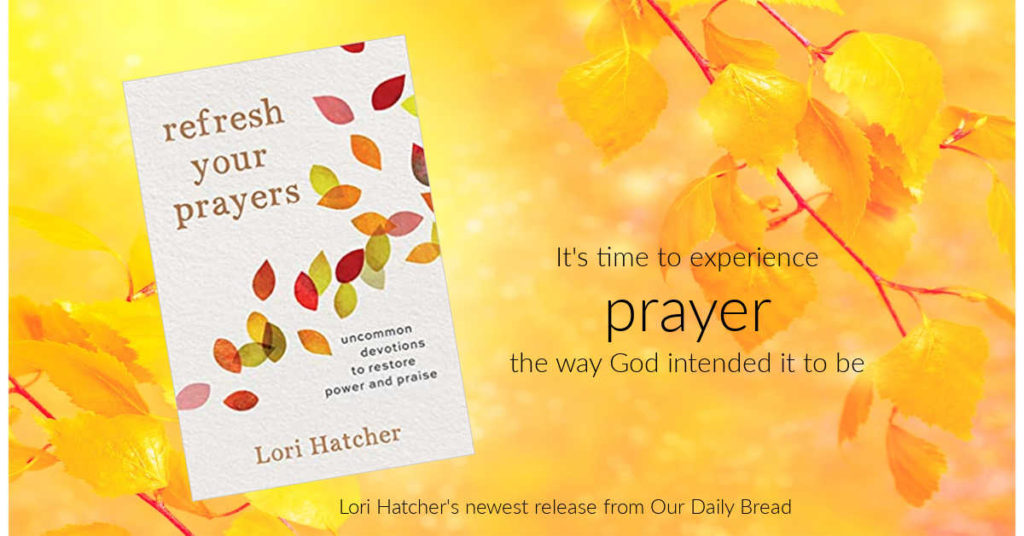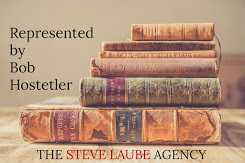“I believe with all my heart God is going to heal him.”
“If I truly believe God is going to ___________ (deliver me from my financial troubles, give me a new car, send me a husband, release me from the job I hate), then he will. But I have to reeeeealy believe it.”
“God wants you to be healthy, wealthy, and happy. If you’re not, it’s because you don’t have enough faith. James 1:6-8 says so: ‘But when he asks, he must believe and not doubt, because he who doubts is like a wave of the sea, blown and tossed by the wind. That man should not think he will receive anything from the Lord.’”
Have you ever heard someone say one or all of these statements? I have.
I’ve also seen people continue to experience illness, financial trouble, singleness, difficult marriages, and challenging jobs, even though they reeeeeeealy believed God was going to answer their prayers for deliverance. Was their faith not strong enough? Did they harbor a smidgen of doubt that hindered God from answering their prayers?
How can we be sure we have enough faith to tip the scales in our favor when God decides which prayers to answer in the affirmative? And how do we “ask in faith, believing,” when we’re just not sure how God’s going to answer?
Years ago I was scheduled to have surgery to remove a cyst/tumor. There was some concern that the growth might be malignant, but we wouldn’t know until the day of surgery. As I prayed about the outcome, I wrestled with “asking in faith, believing,” for a cancer-free report. I knew God could heal me if necessary. He certainly had the power.
But the thought occurred to me that he might not choose to. I’ve lived long enough to know that sometimes God glorifies himself by delivering someone from a difficult situation. Other times he glorifies himself by empowering them to go through it. How could I know God’s will in order to believe with all my heart and get the answer I hoped for?
Jennifer Kennedy Dean, in Live a Praying Life answers this question better than anyone I’ve ever heard. Listen to what she writes:
“Faith is not ‘believing real hard.’ Faith is not shutting your eyes and drawing a long breath and willing yourself to believe something. You can make yourself believe anything, true or not. Believing something won’t make God do it. Belief is one thing; faith is something else.”
Her observations are similar to mine, that because “many believers have mistaken belief for faith, they have had experiences in prayer that are discouraging and disappointing.” She describes faith quite differently than belief:
“Faith has only one focus: God. Jesus said: ‘Have faith in God’ (Mark 11:22). When your faith is in God, not in your own idea of what God should do and how He should do it, then faith has substance. The person who is living a praying life is living a life of faith. That person understands that prayer is always releasing the power of God for the purposes of God. Therefore, once prayer has begun, whatever direction as situation takes, it is taking the direction that will accomplish the purposes of God. That’s faith.”
And then, she writes the words that parted the faith curtain for me: “You do not have to be able to predict how God will act in order to have faith.”
What we must know to be able to ask in faith, believing, is that God is all knowing, all powerful, and all loving. Everything he allows into a believer’s life is to accomplish two purposes: my good and his glory. Knowing this allows me to yield my will to his and trust him to accomplish his ultimate and best purpose in every situation.
Richard Foster, in the book, Prayer, says this: “Frequently we hold on so tightly to the good that we do know that we cannot receive the greater good that we do not know. God has to help us let go of our tiny vision in order to release the greater good he has in store for us . . .”
This is why the true prayer of faith lifts our requests to him, then ends with, “Lord, not my will, but yours be done.” When we pray this way, we can rest in faith, knowing we can trust the God who has all the power of the universe and all the wisdom of the world at his disposal. Knowing that he loves us and is working for our highest good and his glory allows us confidently to yield our will to his, “asking in faith, believing.”
I’m so thankful we don’t have to figure out what’s best and then work ourselves into a belief frenzy before we can pray. Instead, we can come before the Lord and acknowledge, “God, I don’t know what the best answer is in this situation, but you do. I trust you. Please work for my good and your glory.”
Now it’s your turn. What does this explanation of the difference between belief and faith mean to you? Leave a comment in the box below and share your thoughts.
And if you have questions about prayer, I’d love to share the insights I’ve learned over my 20-year journey. Our Daily Bread helped me capture them in my most recent book, Refresh Your Prayers, Uncommon Devotions to Restore Power and Praise.
Does Your Prayer Life Need Refreshing?

We know Bible reading and prayer are vital parts of our faith, but what happens when our prayer lives become stagnant and our quiet times grow stale? We need something more than just familiar verses and the command to pray. In Refresh Your Prayers, Uncommon Devotions to Unlock Power and Praise, Lori Hatcher shares relevant, five-minute devotions that spotlight unusual prayer verses in the Bible.
Each devotion ends with a Power Point (a spiritual truth to empower your faith) and a Praise Prompt (a short prayer designed to magnify God and make your faith soar). The Live It Out section challenges you to apply what you’ve learned right now for immediate change.
If you’re tired of your all-too-quiet quiet time, Refresh Your Prayers is the answer.
The UNcommon Book on Prayer – Unusual Devotions to Unlock Power and Praise
Available now at Amazon.com.

Have you subscribed to Refresh?
If you’d like to receive a weekly 5-minute devotion to help you rediscover the excitement of God’s Word, CLICK HERE.




Lori, I have followed your blog for years, and been refreshed and shared your posts many times. I’m not sure I have commented before, but the topic of divine healing is something I have studied for years. We can’t judge the truth of God’s word by our own experience. By his stripes we were healed, 2 Peter 2:24. The word used for heal in that verse is the same word used throughout the New Testament for salvation, physical healing, and being made whole. Jesus suffered and died to bring us ALL of that. John 10:10 says the thief comes to kill, steal and destroy, but (Jesus) came to bring abundant life. Not sickness. It’s no more God’s will that his children are sick than it is God’s will that people go to hell. This idea that God sometimes withholds healing for some greater purpose is the very thing that prevents us from receiving what Jesus clearly wants us to have, and indeed has already given. Fourteen times in the gospels it says “Jesus healed them all.” Sickness is NOT God’s will for us. We have an enemy who continually comes against us, and this is why James says “Submit to God, resist the devil and he will flee from you.” When people think sickness is from God, they don’t resist it. We pray “thy will be done on earth as it is in heaven.” Is there sickness in heaven? Is there sin? Neither is his will for there to be sickness and sin on earth.
I have received healing many times, and I also have conditions that I have not yet received healing for. But it’s not because God is holding it back from me. It takes effort and focus on Truth to resist the devil, and I have allowed my physical symptoms to tell me I’m not healed, even though I know God’s word says I am just as much healed as I am saved. I have things that aren’t a big issue to live with, and so I tolerate them. That’s on me, not on God. His healing is freely available to me; I haven’t bothered to receive it.
Think of it this way: We could give our kid the best school supplies, the latest computer and calculators and tutors and prep courses, but the child has to put in the work to learn the material and complete the project or pass the test. God has given us everything we need for an abundant life, but we have to renew our minds until we are transformed into the people he meant us to be, spirit, soul, and body. The spirit of God is with us, and we can do it!
Jeanne,
Thank you for being a faithful and engaged reader. Friends like you are such a blessing. I’m praying God’s blessings on you today 🙂
Great question Ms. Lori. While believing in an important aspect of having faith, it is not a foundational concept that anchors our faith. As I read your post, I thought of the man who said “Help my unbelief” (Mark 9:24). I thought of how the disciples “believed” they could heal the boy, but what they failed to understand is the amount of faith needed to be exercised to accomplish the task. So often, we want to believe God will always take away our problems; yet our faith should tell us that if He chooses to allow the problem, then there is a purpose He has for that. It is this we should seek. His will must come before our comfort. Great lesson here ma’am. Thank you!
J.D. I often think of that man, because I am so much like him. I want to be bold and brave in my faith, but sometimes my faith is small. I’m so grateful He answers “mustard size” prayers sincerely offered as well as mountain-sized prayers. Thanks for being an engaged and faithful reader. You’re a blessing to me!
Jennifer Kennedy Dean’s writing have left a deep imprint on my heart. In one of her books, she says that faith is not believing in an event or an outcome, it is believing in a person.
Your book, “Refresh Your Prayers” is also leaving its mark on my heart as I travel through new and uncharted waters.
Oh, Sharon, I love that quite (and that truth) so much! Thank you for sharing it. I’m so grateful Refresh Your Prayers has blessed you. May God draw you ever closer to His heart!